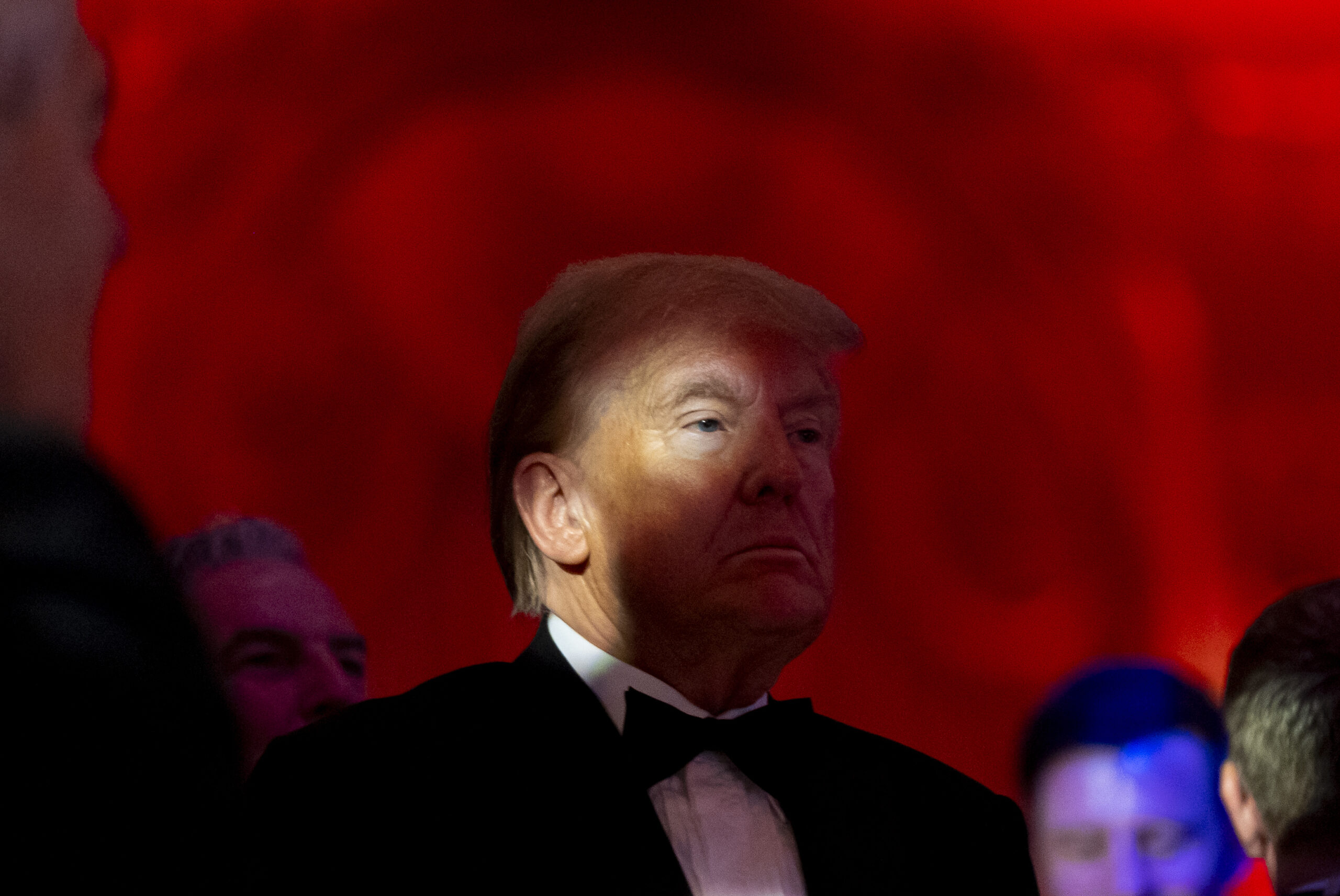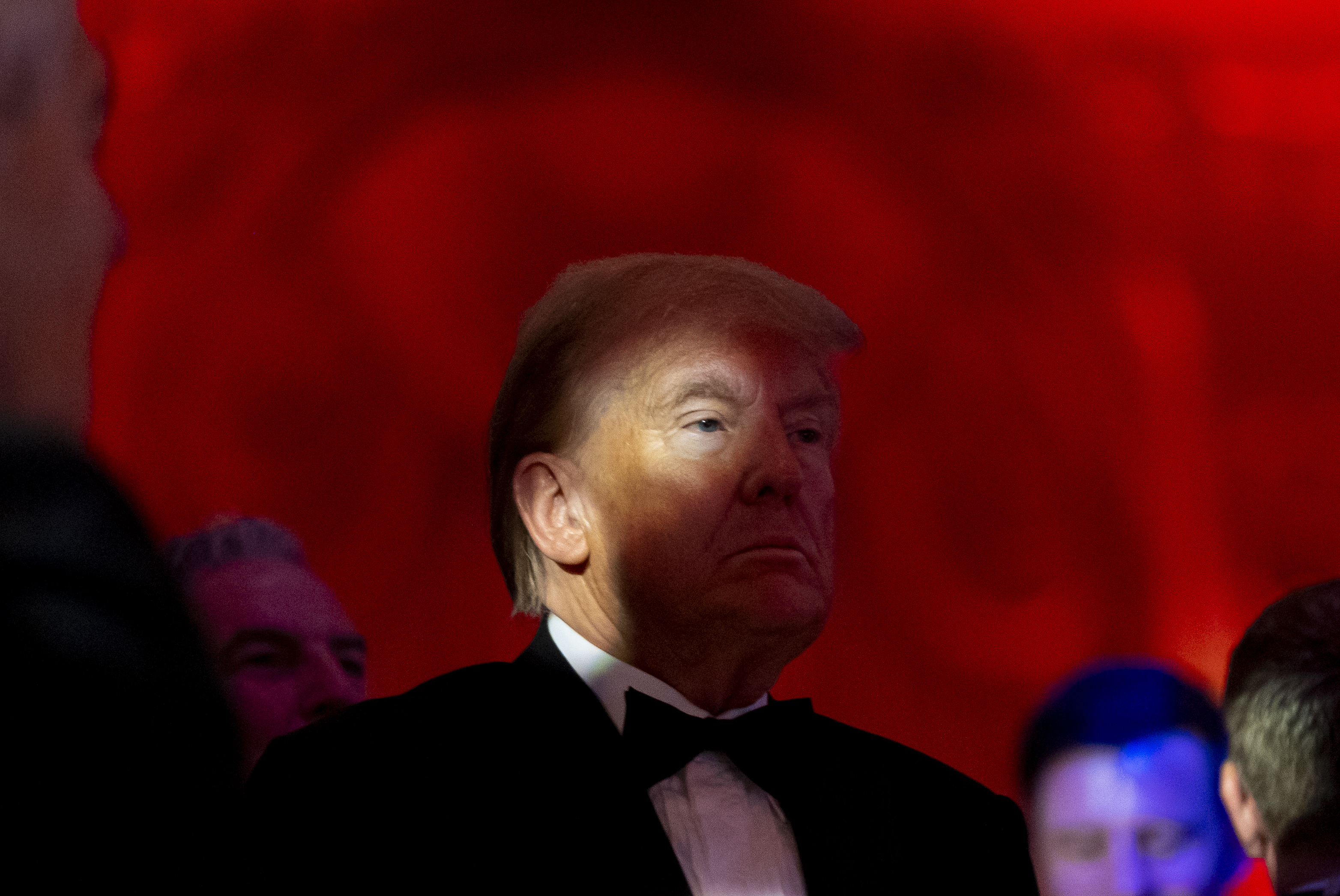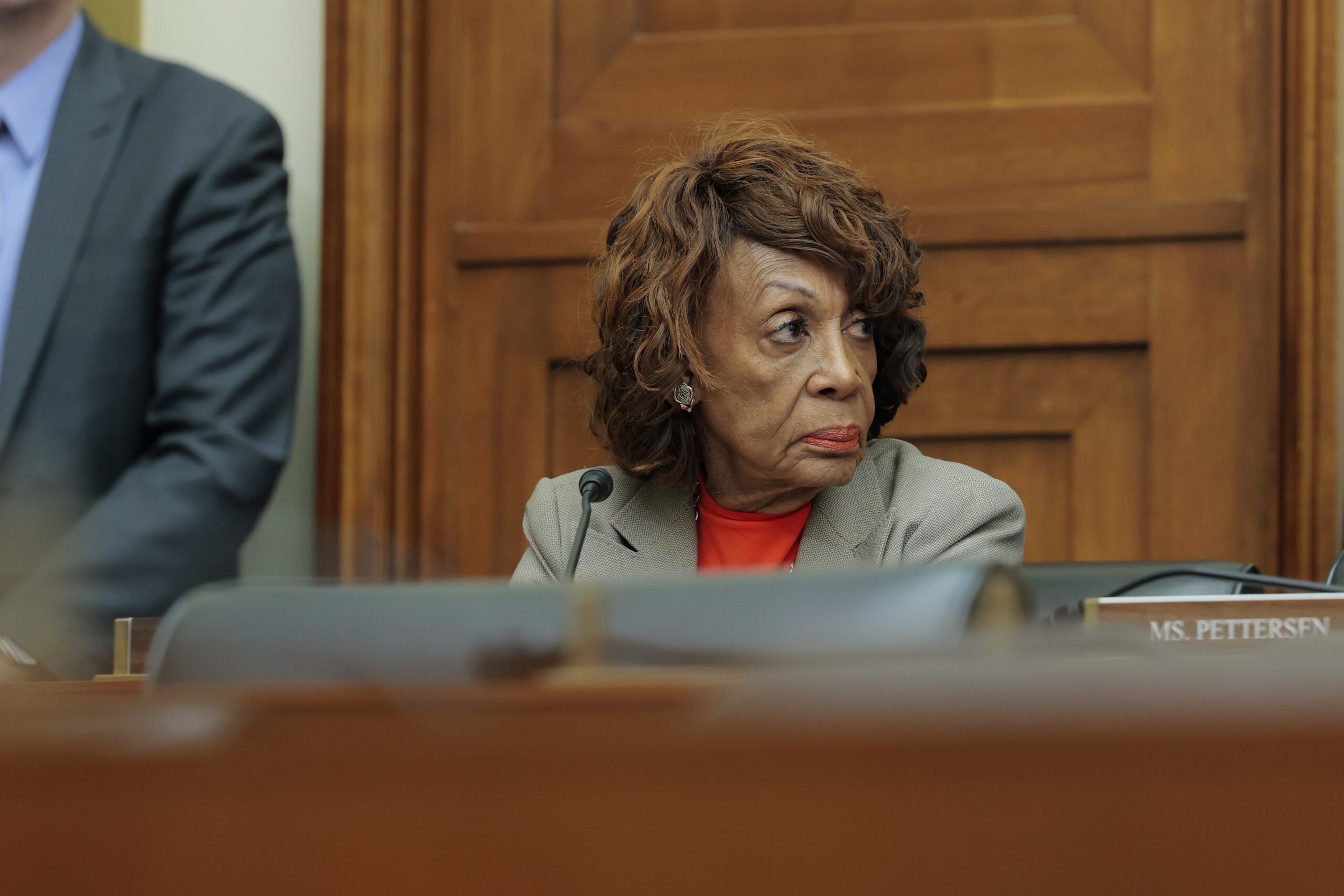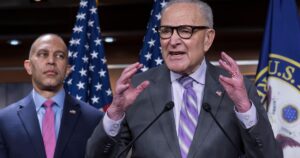Politics
Trump’s immigration crackdown is expected to start on Day 1

In his first 100 days, President-elect Donald Trump plans to begin the process of deporting hundreds of thousands of people. He is expected to end parole for people from Cuba, Haiti, Nicaragua and Venezuela. And he is likely to undo a policy that significantly constrained deportations for people who weren’t deemed threats to public safety or national security.
Trump’s team is already thinking about how to craft executive actions aimed to withstand the legal challenges from immigrants’ rights groups — all in hopes of avoiding an early defeat like the one his 2017 travel ban targeting majority-Muslim nations suffered. This time, Trump may have friendlier arbiters. These fights will be refereed by a federal judiciary that he transformed during his first term, including by appointing more than 200 federal judges himself. And at the very top — the ultimate decider of these questions — is the Supreme Court, to which he appointed three conservative justices.
But legal fights aren’t the only long-term challenge Trump’s ambitious immigration agenda will face. The logistical challenges of mass deportation are a little harder to predict. The speed at which Trump could remake deportation policy depends on surmounting tactical challenges like expanding detention capacity and cutting through a massive immigration court backlog.
Trump has already tapped South Dakota Gov. Kristi Noem, who has little experience with the Department of Homeland Security, to lead the sprawling agency. From inside the White House, Stephen Miller, widely seen as the architect of Trump’s first-term restrictionist agenda, has an expansive role over domestic policy. And Thomas Homan, a former acting director of Immigration and Customs Enforcement under Trump, is returning to be the administration’s border czar.
Through it all, Trump’s immigration team will face intense and sustained scrutiny from the president himself.
Here are some of the immigration initiatives Trump’s team is expected to roll out quickly, and the hurdles they could face:
Ramping up deportations
Trump campaigned on mass deportation — something that could affect large swaths of the 11 million people DHS estimates are in the U.S. without legal authorization.
But deporting millions of people could run into some logistical problems. According to DHS, the largest number of yearly removals came in FY 2013 during the Obama administration, when more than 430,000 people were removed from the U.S.
Trump’s advisers have indicated they would prioritize people with criminal convictions and final removal orders for deportation. In 2022, according to the pro-immigration American Immigration Council, about 1.19 million people had those orders — meaning their cases had worked their way through immigration court and judges decided they must leave. Just removing the people in that category could take years.
Finding, detaining and removing those people would be resource-intensive, said John Sandweg, acting director of ICE from 2013 to 2014. Detention capacity alone would be a costly and immediate challenge. Lawmakers need to appropriate the funding, and even if they do, the administration would need to hire, vet and train more officers — no easy feat.
ICE currently employs 7,000 officers who conduct 250,000 deportations a year, according to the agency. If Trump’s administration wanted to quadruple this number, as Trump has promised, training academies couldn’t handle a deluge of new hires.
“It is just a resource game, but it’s a hard game to play,” Sandweg said.
Regardless of the hurdles and impediments, Trump has been unequivocal.
“It’s not a question of a price tag. It’s not — really, we have no choice,” he told NBC News on Thursday. “When people have killed and murdered, when drug lords have destroyed countries, and now they’re going to go back to those countries because they’re not staying here. There is no price tag.”
Ending parole for people from Cuba, Haiti, Nicaragua and Venezuela
Another Biden administration program that’s likely to end fast: a special visa-free humanitarian parole process for some residents of Cuba, Haiti, Nicaragua and Venezuela. The Biden administration, to discourage migrants from trying to cross the border illegally, offered a way for some people from these countries to enter the country legally if they were vetted and had an American-based sponsor. As of August, nearly 530,000 Cubans, Haitians, Nicaraguans and Venezuelans had traveled to the U.S. via the program and were granted permission to live and work in the U.S. for two years.
Trump, meanwhile, campaigned on expelling many of them. Over the summer, he spread baseless claims that Haitians in Springfield, Ohio, were eating people’s pets. And he promised to revoke Haitians’ eligibility for Temporary Protected Status — another program that shields some people from countries with unsafe conditions from deportation and grants them work permits. Many Haitians can work in the U.S. legally because of TPS, a tool secretaries of Homeland Security have used since 1990.
“All that stuff is going to end very fast, almost immediately,” said Dan Stein of the Federation for American Immigration Reform (FAIR), a restrictionist group.
Stein’s group is closely allied with Trump’s team and became a feeder for personnel during the first Trump administration.
“They basically hired half our staff,” he said.
Mark Krikorian, of the restrictionist Center for Immigration Studies, agreed that the temporary provision of TPS work documents to people from certain countries deemed dangerous would likely be constricted dramatically.
Currently, DHS makes this program available to people from 16 countries, including El Salvador, Ukraine, Syria, Somalia and Haiti. During Trump’s first term, his administration tried to end TPS status for more than 300,000 people. But immigrants sued, arguing the move was made out of racial animus. They secured a nationwide injunction that lasted through the Trump administration.
Rolling back the Mayorkas memo
Early in the Biden administration, Homeland Security Secretary Alejandro Mayorkas issued a memo laying out priorities for which immigrants to deport. It emphasized people who threaten national security and public safety, and it directed ICE officers to learn “the totality of the facts and circumstances” about criminal convictions before deciding whether to deport someone — rather than solely using a conviction as a basis for deportation.
Immigration restrictionists expect that guidance will be one of the first things to go.
“That stuff’s going to end obviously, right away,” said Krikorian, whose work was frequently cited by the first Trump administration.
Another person close to Trump’s transition, granted anonymity to discuss sensitive plans, said Mayorkas’ memo could be revoked as soon as Day One, possibly as part of a broader package of executive actions intended to reduce “bureaucratic” hurdles that impede deportations.
Deactivating the CBP One app
The Biden administration rolled out a mobile phone application called CBP One that migrants could use to set up appointments to seek asylum. While Democrats hoped it would create more order around the border, Republicans said the initiative was a way to rush in people who shouldn’t be allowed to enter the United States. Amnesty International, meanwhile, said it violates international law by restraining where and how people could seek asylum. Either way, under Trump, according to the person close to the transition, it’s likely toast.

Ramping up immigration diplomacy
Another tool the Trump administration may use quickly is threats to countries that resist repatriating unwanted migrants.
One challenge for rapid deportations is that the home countries of many migrants — particularly those convicted of violent crimes — don’t always want to take them back. So those people sometimes stay in jails or immigration detention centers in the U.S. indefinitely. To pressure those countries, the U.S. government can threaten to restrict visas for certain categories of applicants.
The Trump and Obama administrations both deployed this option because of this recalcitrance. But the Biden administration has not. In the first 100 days, Trump’s immigration team will likely assess which countries they deem most problematic and decide whether to threaten sanctions.
“I think you’re going to see a significant increase and you’re going to see it early,” Krikorian said. “I’m pretty certain it would be in the first hundred days — there’s no reason you’d wait three months to do something.”
The moves would require cooperation from the State Department, which issues visas. So Trump’s immigration-focused advisers will likely ensure that candidates for top roles at State are simpatico with the administration’s immigration policy — and Sen. Marco Rubio is widely expected to be Trump’s pick for secretary of State.
“That’s going to be a condition for their appointment,” said Jessica Vaughan, also of the Center for Immigration Studies. “They’re not going to appoint someone and want to be surprised later on — ‘I don’t know, we’re not going to play our role.’ It’s in the job description.”
Trump has also said he would restore his Remain in Mexico policy — officially called Migrant Protection Protocols — that required some asylum-seekers to stay south of the U.S.-Mexican border while they await immigration court hearings. But this will require the Trump administration to reach a deal with Mexico to restart the program.
Politics
Trump is Pushing Big Tech on Data Center Energy Costs
Trump is Pushing Big Tech on Data Center Energy Costs
 lead image
lead image
Politics
Maxine Waters is the newest target in Democrats’ intergenerational war

Waters has been in Congress for 35 years, but Myla Rahman says the district needs fresh representation…
Read More
Politics
Capitol agenda: Democrats demand more from GOP on DHS
Do we have a negotiation or a stalemate? The answer to that question will determine whether the Department of Homeland Security shuts down in just four days, and Tuesday morning, it’s not entirely clear which way things are headed. Democratic leaders Chuck Schumer and Hakeem Jeffries panned a White House counterproposal sent to them Monday evening as too light on details for how to rein in President Donald Trump’s immigration enforcement agenda…
Read More
-

 The Dictatorship12 months ago
The Dictatorship12 months agoLuigi Mangione acknowledges public support in first official statement since arrest
-

 Politics12 months ago
Politics12 months agoFormer ‘Squad’ members launching ‘Bowman and Bush’ YouTube show
-

 The Dictatorship5 months ago
The Dictatorship5 months agoMike Johnson sums up the GOP’s arrogant position on military occupation with two words
-

 Politics12 months ago
Politics12 months agoBlue Light News’s Editorial Director Ryan Hutchins speaks at Blue Light News’s 2025 Governors Summit
-

 The Dictatorship12 months ago
The Dictatorship12 months agoPete Hegseth’s tenure at the Pentagon goes from bad to worse
-

 Politics12 months ago
Politics12 months agoFormer Kentucky AG Daniel Cameron launches Senate bid
-
Uncategorized1 year ago
Bob Good to step down as Freedom Caucus chair this week
-

 Politics10 months ago
Politics10 months agoDemocrat challenging Joni Ernst: I want to ‘tear down’ party, ‘build it back up’




